
Gujranwala: The Heart of Wrestlers and Food Lovers
Gujranwala, located in the Punjab province of Pakistan, is a city known for its rich history and vibrant culture. Often referred to as the 'City of Wrestlers' due to its long-standing tradition of producing some of the finest wrestlers in the world, Gujranwala is a place where strength and resilience are deeply embedded in the local ethos. The city is also famous for its culinary delights, offering a variety of traditional Punjabi dishes that are sure to tantalize your taste buds. As you wander through the bustling streets of Gujranwala, you'll encounter a blend of old-world charm and modernity. The city is home to several historical sites, including the Ghanta Ghar (Clock Tower) and the Sheranwala Bagh, a lush garden ideal for a relaxing afternoon. The local bazaars are a treasure trove of handmade crafts, textiles, and spices, reflecting the artistic spirit of the region. In addition to its cultural and historical significance, Gujranwala is a hub for local festivals and events that offer a glimpse into the vibrant life of the city. From wrestling matches to food festivals, there's always something happening in Gujranwala. Whether you're a history buff, a foodie, or someone looking to experience authentic Pakistani culture, Gujranwala has something for everyone.
Local tips in Gujranwala
- Visit the local bazaars early in the morning for the best deals and freshest produce.
- Try the local specialty, 'Tikka,' from one of the many street food vendors.
- Attend a traditional wrestling match to experience the city's unique cultural heritage.
- Hire a local guide to explore historical sites and learn about their significance.
- Stay hydrated and wear comfortable clothing, especially during the summer months.
Gujranwala: The Heart of Wrestlers and Food Lovers
Gujranwala, located in the Punjab province of Pakistan, is a city known for its rich history and vibrant culture. Often referred to as the 'City of Wrestlers' due to its long-standing tradition of producing some of the finest wrestlers in the world, Gujranwala is a place where strength and resilience are deeply embedded in the local ethos. The city is also famous for its culinary delights, offering a variety of traditional Punjabi dishes that are sure to tantalize your taste buds. As you wander through the bustling streets of Gujranwala, you'll encounter a blend of old-world charm and modernity. The city is home to several historical sites, including the Ghanta Ghar (Clock Tower) and the Sheranwala Bagh, a lush garden ideal for a relaxing afternoon. The local bazaars are a treasure trove of handmade crafts, textiles, and spices, reflecting the artistic spirit of the region. In addition to its cultural and historical significance, Gujranwala is a hub for local festivals and events that offer a glimpse into the vibrant life of the city. From wrestling matches to food festivals, there's always something happening in Gujranwala. Whether you're a history buff, a foodie, or someone looking to experience authentic Pakistani culture, Gujranwala has something for everyone.
When is the best time to go to Gujranwala?
Iconic landmarks you can’t miss
Sialkoti Gate
Discover the historical charm of Sialkoti Gate, a captivating landmark in Gujranwala that reflects the rich heritage of Punjab.
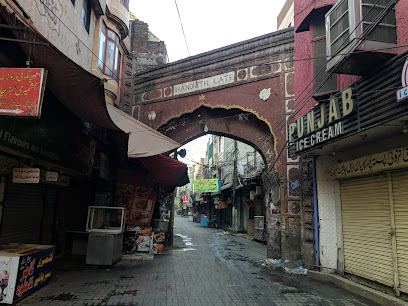
Fun Dunya Amusement Park Gujranwala
Explore the exhilarating Fun Dunya Amusement Park in Gujranwala, a family-friendly destination filled with rides, games, and endless fun for all ages.
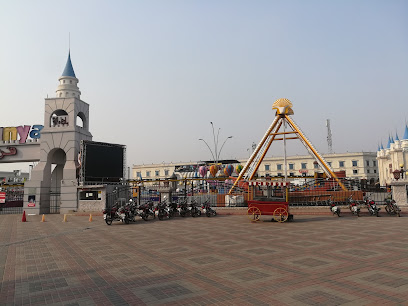
Gulshan-e-Iqbal Park
Discover the tranquility of Gulshan-e-Iqbal Park, Gujranwala's lush urban oasis, perfect for relaxation, recreation, and connecting with nature.
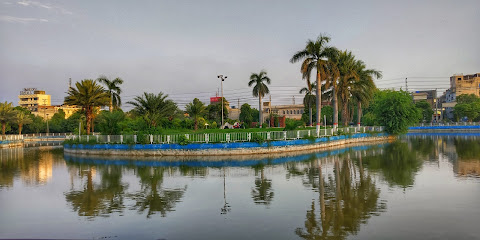
Sana Safinaz
Explore the vibrant world of fashion at Sana Safinaz in Gujranwala, where modern trends meet traditional elegance in a delightful shopping experience.
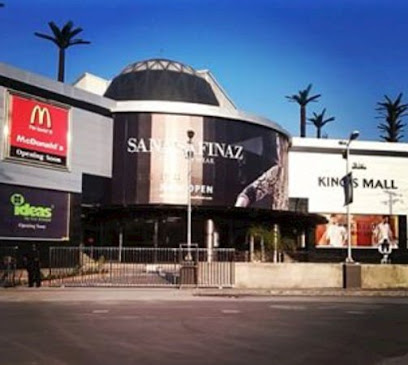
Mughal Mahal Hotel
Discover the elegance of Mughal Mahal Hotel in Gujranwala, an exquisite blend of luxury and tradition for an unforgettable stay.
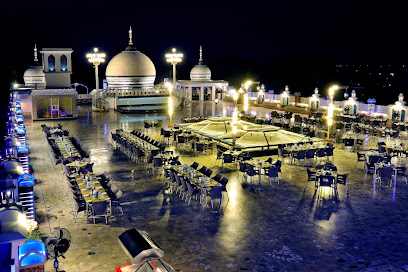
Jinnah Park
Discover Jinnah Park, a serene escape in Gujranwala, where lush greenery meets local culture, perfect for relaxation and family fun.
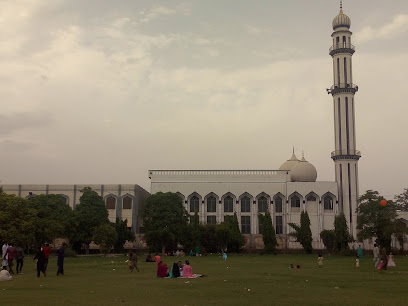
Clock Tower Gujranwala
Experience the cultural heartbeat of Gujranwala at the historic Clock Tower, a symbol of local heritage and community spirit.
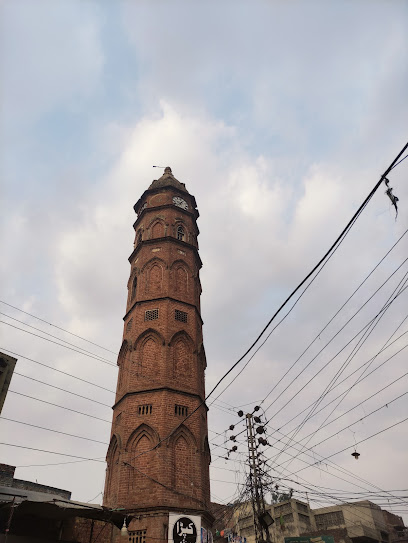
Lahori Gate
Explore the historical significance and vibrant culture at Lahori Gate, a must-visit landmark in Gujranwala, Punjab, Pakistan.
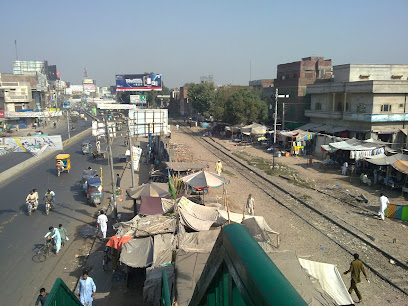
Lone Palace Marriage Hall
Lone Palace Marriage Hall: The perfect wedding venue in Gujranwala, blending elegance with modern amenities for your special celebration.
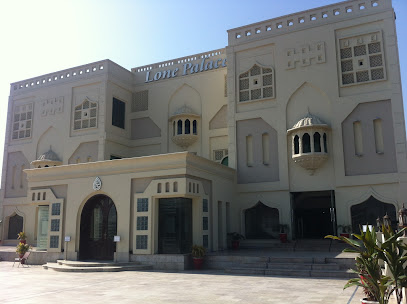
Liaqat Park (لیاقت پارک)
Discover the tranquil beauty of Liaqat Park, a serene garden oasis in Gujranwala, perfect for relaxation and cultural immersion.
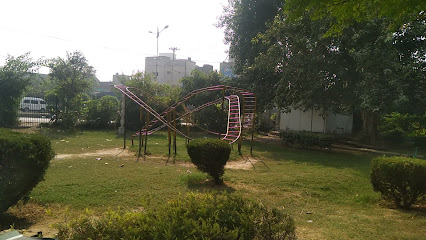
C-2 Park
Explore the tranquil beauty of C-2 Park in Gujranwala, a serene escape filled with lush landscapes and recreational activities for all ages.
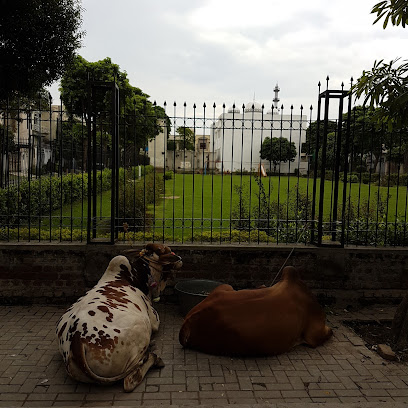
Khiali Derwaza
Explore the historical wonders of Khiali Derwaza in Gujranwala, a landmark reflecting the rich cultural heritage of Pakistan.
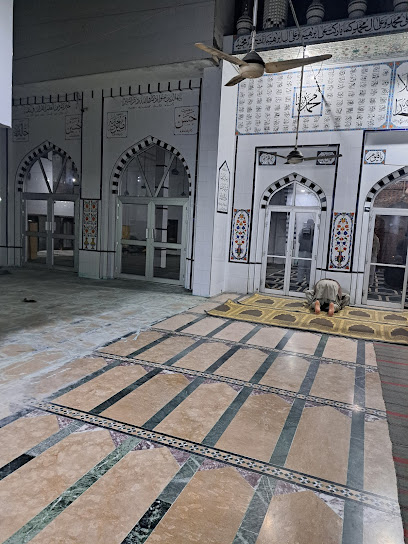
Kothi Darzian Wali
Experience the cultural heritage of Punjab at Kothi Darzian Wali, a stunning historical landmark in Gujranwala that captivates every visitor.
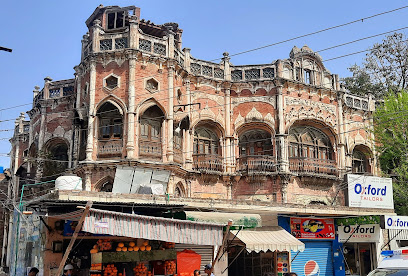
Memorial Tomb of Jain Monk Atma Ramji
Explore the serene Memorial Tomb of Jain Monk Atma Ramji in Gujranwala, a historical site rich in Jain culture and spiritual significance.
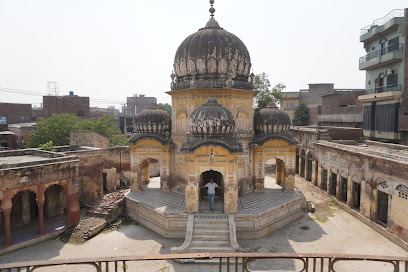
Haveli of Maharaja Ranjit Singh (Sher-e-Punjab)
Discover the Haveli of Maharaja Ranjit Singh, a historical treasure in Gujranwala, showcasing the rich cultural heritage of Punjab.
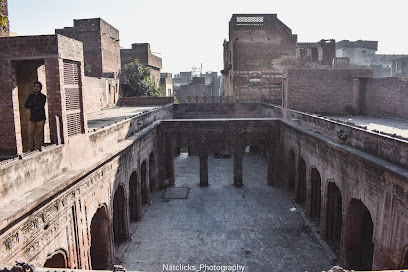
Unmissable attractions to see
Fun Dunya Amusement Park Gujranwala
Discover the thrill of Fun Dunya Amusement Park in Gujranwala, where adventure awaits for visitors of all ages with exhilarating rides and exciting attractions.
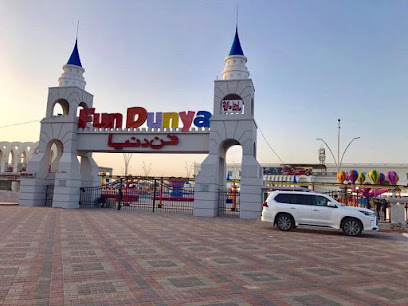
Gulshan-e-Iqbal Park
Discover tranquility and beauty at Gulshan-e-Iqbal Park, a serene oasis in the heart of Gujranwala, perfect for relaxation and recreation.
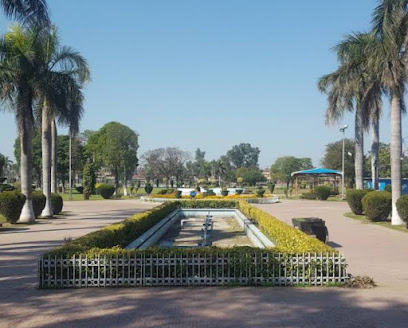
Jinnah Park
Experience the lush greenery and vibrant atmosphere at Jinnah Park, a beloved recreational haven in Gujranwala, perfect for relaxation and family outings.
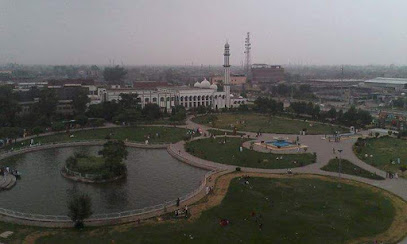
Sheranwala Bagh
Explore the lush beauty and historical charm of Sheranwala Bagh, a serene escape in Gujranwala, Punjab, perfect for relaxation and leisure.
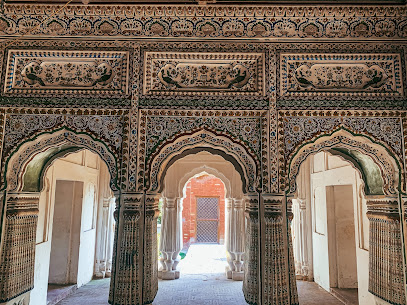
Liaqat Park (لیاقت پارک)
Experience the tranquil beauty of Liaqat Park in Gujranwala, a picturesque garden filled with lush greenery and vibrant blooms.
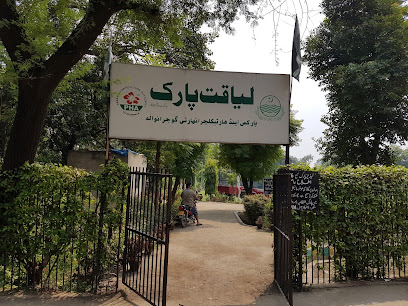
Hatim Tai Play land (sasta bazar)
Explore the vibrant Hatim Tai Play Land in Gujranwala, where thrilling rides and family fun await in a lively amusement park atmosphere.
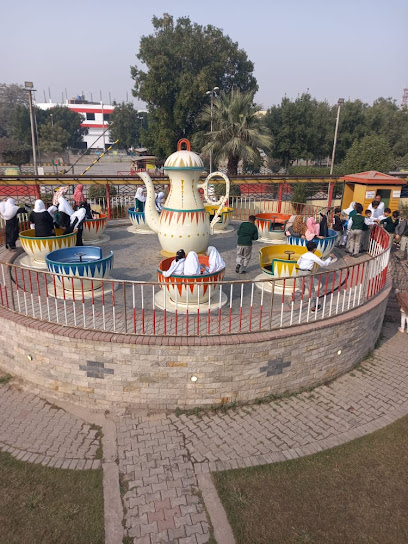
Cantt Garden
Explore the serene landscapes of Cantt Garden in Gujranwala, a perfect retreat for nature lovers and families seeking tranquility amidst vibrant flora.
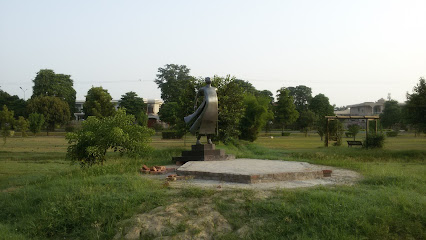
Charpark
Discover the serene beauty of Charpark, a lush green haven in Gujranwala, perfect for relaxation and outdoor activities amid nature.
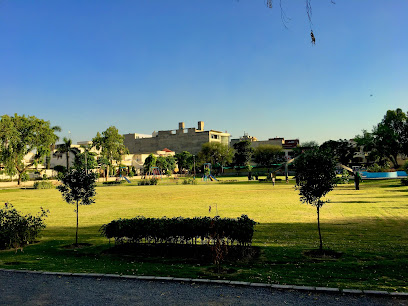
I love Gujranwala Selfie Point
Explore the vibrant I Love Gujranwala Selfie Point, where stunning selfies and cultural experiences await in the heart of Punjab.
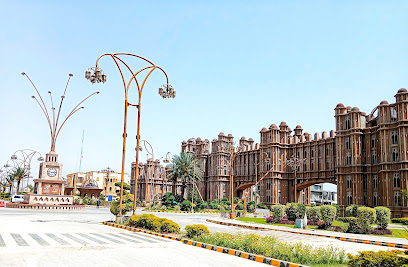
Ayesha Bibi Park
Discover tranquility at Ayesha Bibi Park, Gujranwala's green oasis perfect for relaxation, family outings, and leisurely strolls in nature's embrace.
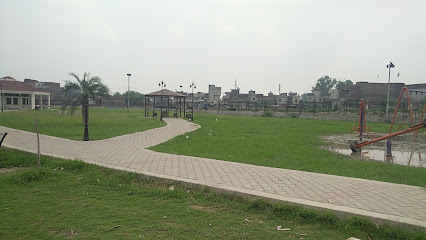
Family Park
Explore the tranquil beauty of Family Park in Gujranwala, a perfect retreat for families and nature lovers with lush greenery and fun-filled activities.
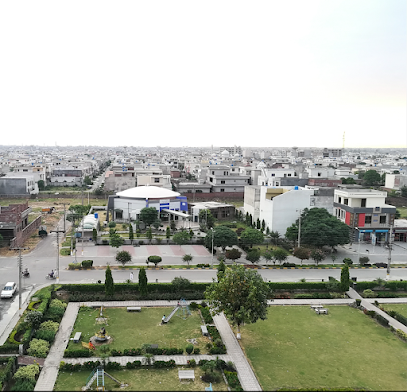
Nishan-e-Manzil Park
Discover tranquility at Nishan-e-Manzil Park in Gujranwala, a lush haven for relaxation, family fun, and vibrant local culture.
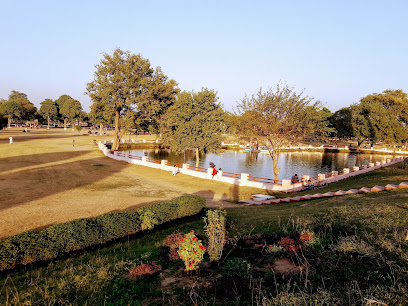
Allama Iqbal Park
Discover the tranquility of Allama Iqbal Park in Gujranwala, a lush green oasis perfect for relaxation, picnics, and cultural exploration.
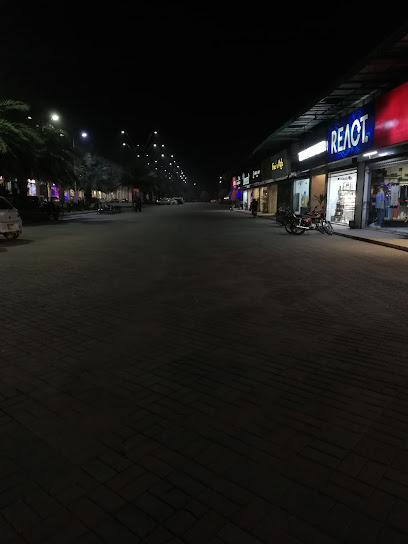
Ghauri Park
Explore Ghauri Park in Gujranwala—your serene escape with lush greenery, scenic paths, and a tranquil atmosphere for relaxation and recreation.
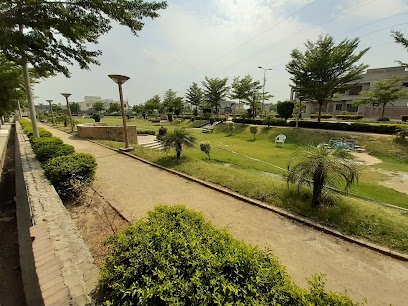
Sharanwala baradari
Explore Sharanwala Baradari, a historical gem in Gujranwala, Punjab, showcasing the rich culture and architectural beauty of the region.
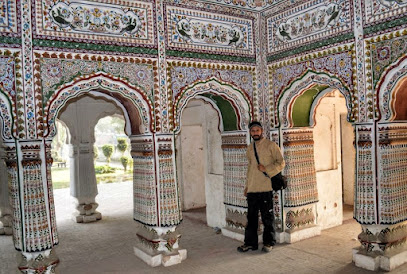
Essential places to dine
Shahbaz Tikka شہباز تکہ
Discover the authentic flavors of Pakistan at Shahbaz Tikka - where every bite tells a story.
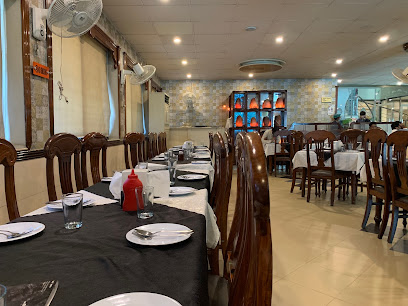
KFC - Gujranwala
Discover the deliciousness of KFC Gujranwala - where iconic fried chicken meets local hospitality in the heart of Punjab.
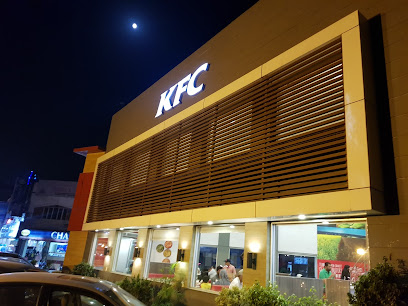
Chahaar Baagh Resturant Gujranwala Cantt
Experience the best of Pakistani cuisine with a unique Turkish twist at Chahaar Baagh Restaurant in Gujranwala.
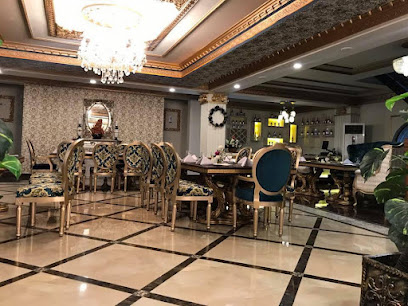
FRY MASTER
Discover the authentic taste of Chinese cuisine at Fry Master in Gujranwala - where every meal is a celebration of flavor.
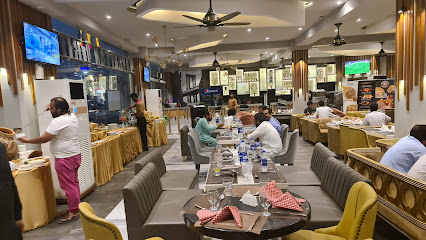
Pind Restaurant Rooftop and Air-conditioned Hall
Discover authentic Pakistani cuisine with breathtaking views at Pind Restaurant Rooftop in Gujranwala.
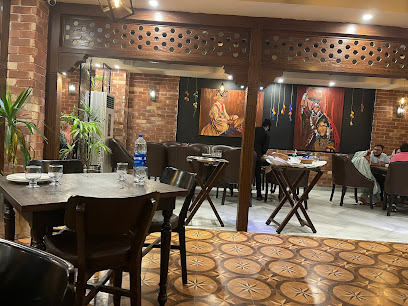
Bait Al Mandi - Gujranwala
Experience the exquisite flavors of traditional Pakistani cuisine at Bait Al Mandi in Gujranwala - where every meal is a celebration.
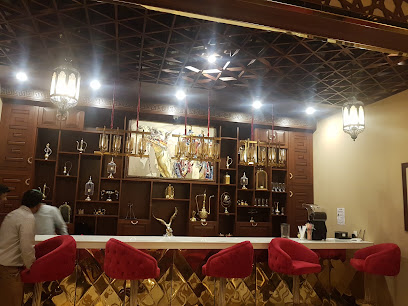
Prime Restaurant
Discover the essence of local cuisine at Prime Restaurant in Gujranwala—where every dish tells a story.
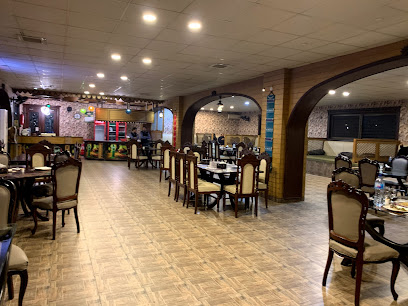
Nirala Hotel
Experience the authentic flavors of Pakistan at Nirala Hotel in Gujranwala - where every meal is a celebration of tradition.
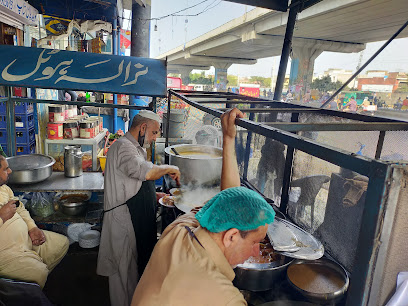
Usmania Restaurant and Marriage Hall
Experience the rich flavors of Pakistan at Usmania Restaurant and Marriage Hall in Gujranwala - where tradition meets taste.
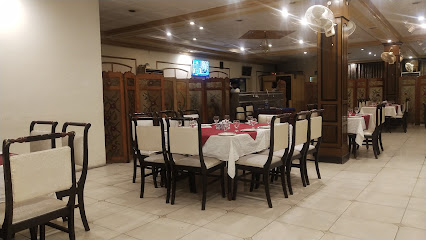
Malee's Café, Baker's and Family Restaurant
Discover the vibrant flavors of Malee's Café: where delicious food meets family-friendly ambiance in Gujranwala.
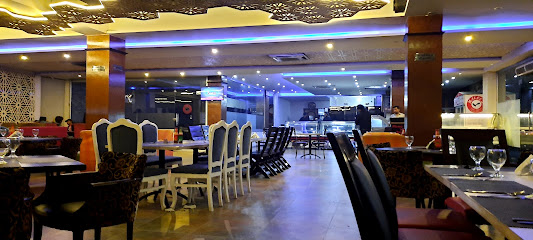
Naanlecious
Experience authentic Pakistani cuisine at Naanlecious in Gujranwala - where every bite tells a story.
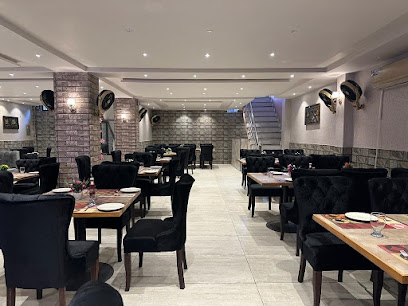
Bundu Khan
Discover authentic Pakistani flavors at Bundu Khan in Gujranwala - where tradition meets taste.
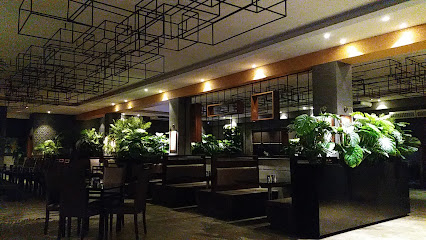
Real Taste Restaurant
Experience exquisite continental cuisine at Real Taste Restaurant in Gujranwala - where every meal is crafted with passion.
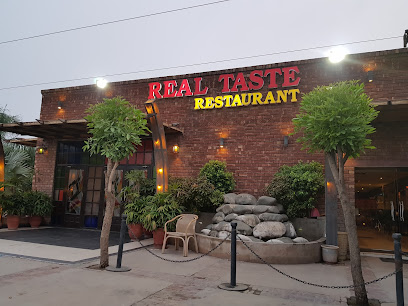
Yadgaar Hareesa
Discover authentic Pakistani breakfast at Yadgaar Hareesa in Gujranwala - a must-visit for food lovers seeking rich flavors.
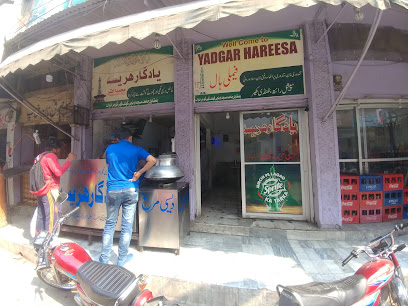
Riaz Restaurant
Discover authentic Pakistani flavors at Riaz Restaurant in Gujranwala – where every meal tells a story.
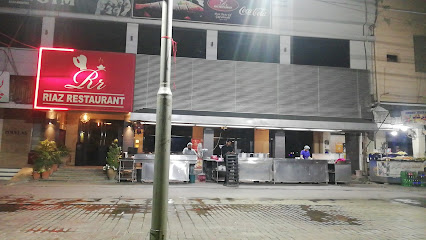
Markets, malls and hidden boutiques
Imtiaz Mega
Explore Imtiaz Mega in Gujranwala for a comprehensive shopping experience featuring groceries, electronics, and a pharmacy, all in one vibrant location.
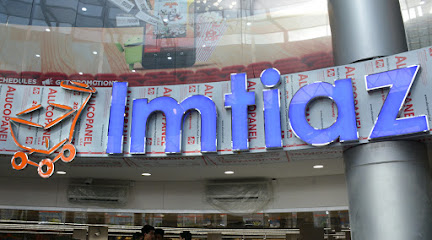
Dar Emporium
Discover fashion and family-friendly shopping at Dar Emporium, Gujranwala's premier shopping mall with diverse styles for every occasion.
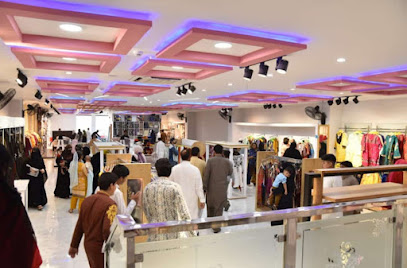
Shopping Centre Gujranwala
Discover a vibrant shopping experience at Shopping Centre Gujranwala, featuring unique gifts, cosmetics, books, toys, and elegant watches.
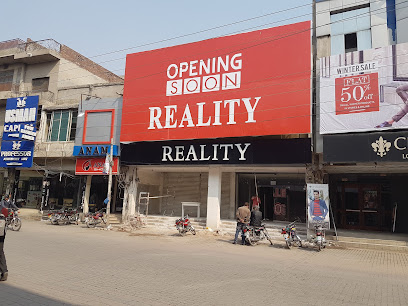
Dubai Gift Centre
Explore the Dubai Gift Centre in Gujranwala for unique handicrafts and souvenirs that capture the essence of Pakistani culture.
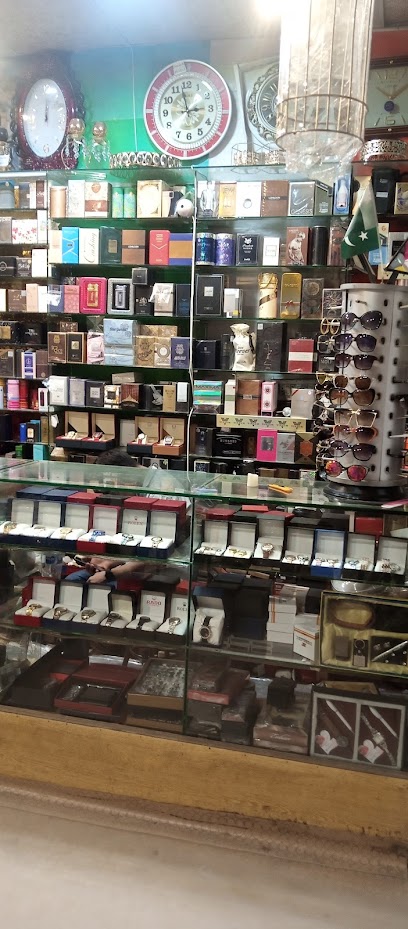
Malik Silk Emporium
Explore the elegance of silk at Malik Silk Emporium, Gujranwala's premier destination for women's clothing and traditional craftsmanship.
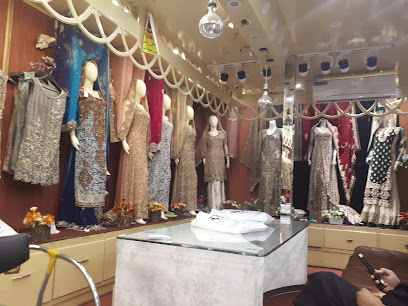
Subhan Mall
Discover the ultimate shopping experience at Subhan Mall, Gujranwala - where style meets family convenience.
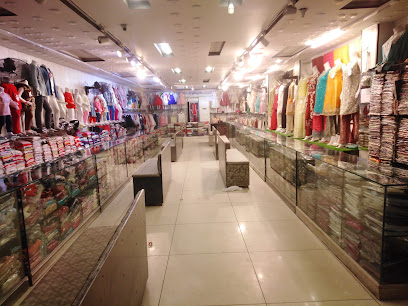
CITI CENTER
Explore Citi Center in Gujranwala for an unforgettable shopping adventure with diverse stores, dining options, and a vibrant atmosphere.
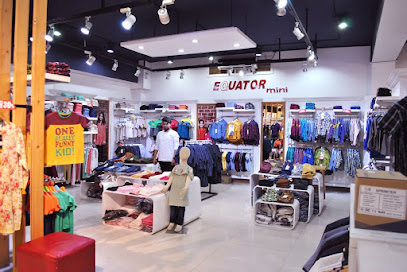
AlBalagh Islamic Store Gujranwala البلاغ گوجرانوالہ
Explore AlBalagh Islamic Store in Gujranwala for a unique collection of religious goods, books, and women's clothing reflecting Islamic culture.
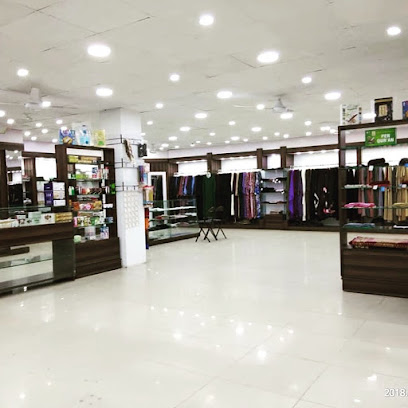
Miniso Satellite Town Gujranwala
Discover stylish and affordable lifestyle products at Miniso Satellite Town, the perfect shopping destination in Gujranwala.
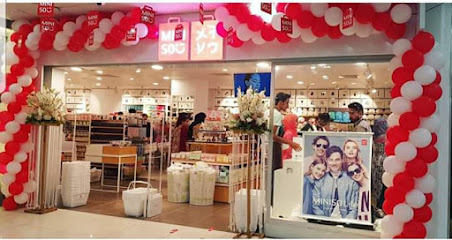
Dollar store Garjakh Gujranwala
Explore the vibrant Dollar Store in Garjakh, Gujranwala for unique gifts and essentials at affordable prices, perfect for every tourist's needs.
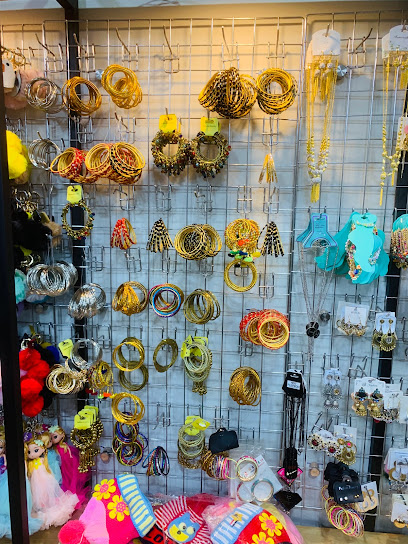
Orient, Satellite Town, Gujranwala Store
Explore the latest trends at Orient, Gujranwala's top clothing store for stylish and affordable fashion for the entire family.
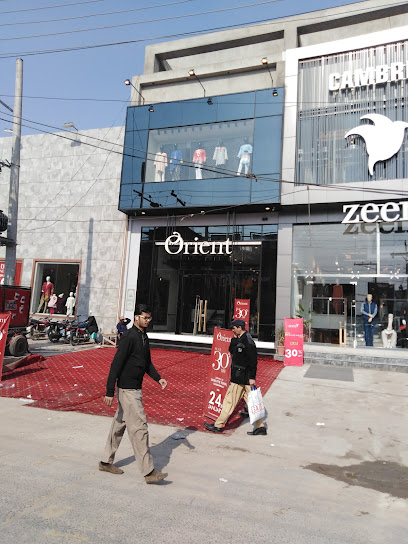
Hanif Heights
Explore Hanif Heights, the ideal shopping haven in Gujranwala with boutiques and baby clothing stores to satisfy all your shopping desires.
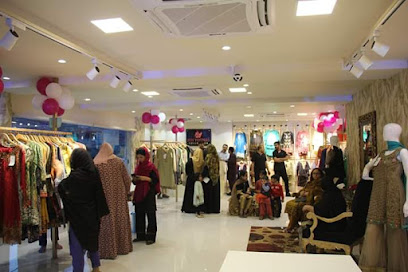
VISIT 'n' BUY
Explore VISIT 'n' BUY in Gujranwala for an unforgettable shopping experience filled with local culture, unique treasures, and vibrant community.
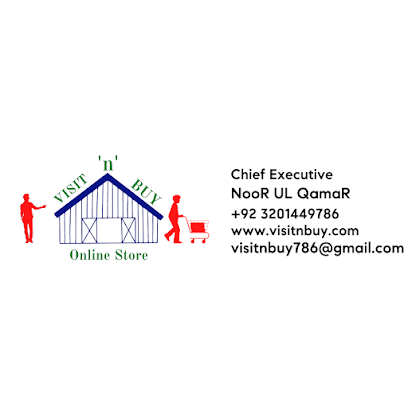
Gift City Online Store
Explore an eclectic mix of unique gifts and home decor at Gift City Online Store in Gujranwala, the ultimate shopping destination for tourists.
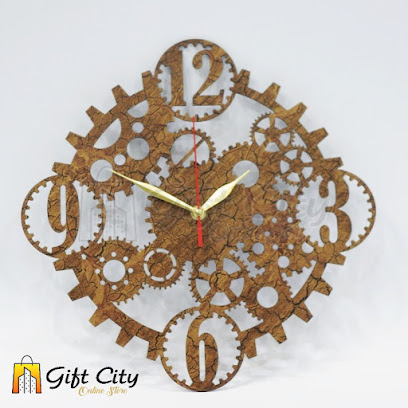
Aleez
Explore trendy women's fashion at Aleez in Gujranwala, where style meets affordability in a vibrant outlet mall atmosphere.
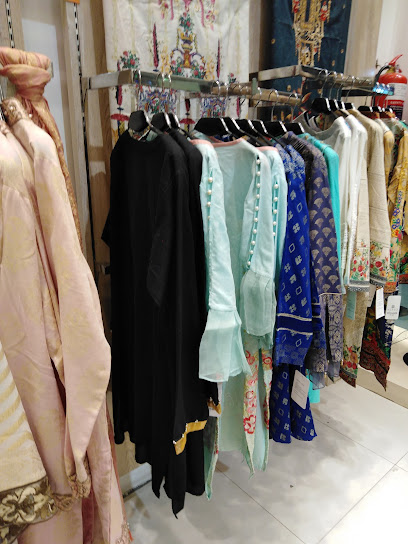
Essential bars & hidden hideouts
B Bar
Discover the vibrant nightlife at B Bar, Gujranwala’s ultimate destination for drinks, snacks, and unforgettable experiences.
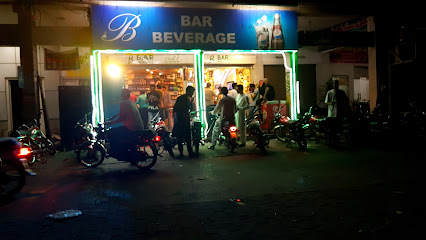
Haveli Lounge&Cafe
Discover the perfect blend of local culture and modern dining at Haveli Lounge & Cafe in Gujranwala, Punjab.
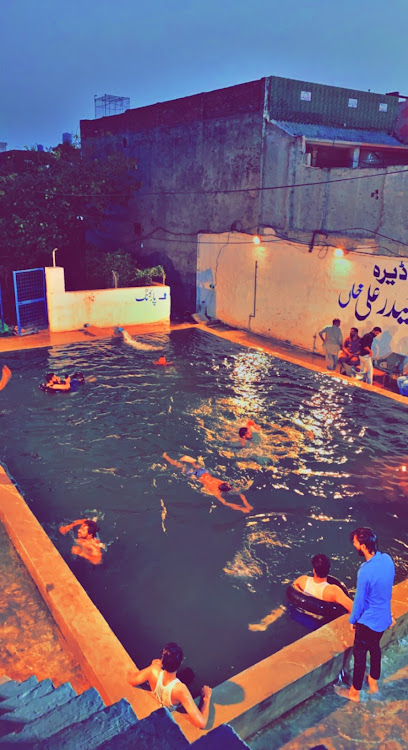
Malik Nasir Gujranwala
Discover the lively atmosphere of Malik Nasir Gujranwala, a bar that blends local charm with a vibrant social scene.
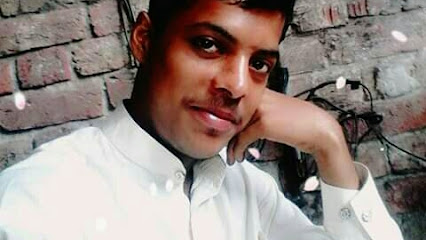
Smokers Hub
Experience the lively atmosphere and diverse drink selection at Smokers Hub, Gujranwala's premier bar for tourists seeking relaxation and local culture.
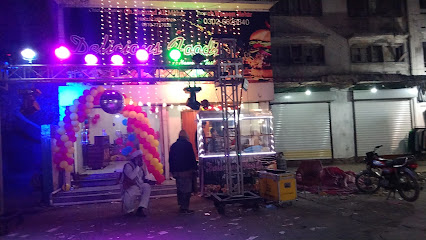
ICE LOUNGE CAFE
Discover the vibrant atmosphere of Ice Lounge Cafe in Gujranwala, a perfect spot for drinks, snacks, and socializing with locals and fellow travelers.

Ali cold corner
Discover the lively ambiance of Ali Cold Corner, a premier bar in Gujranwala offering a delightful selection of beverages and a vibrant local atmosphere.
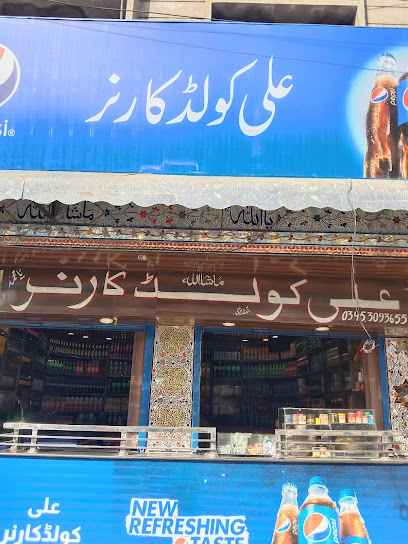
NAVEED ANWAR NAVEED BAR CAFE
Experience the vibrant flavors of Gujranwala at Naveed Anwar Naveed Bar Cafe, where local snacks and drinks await in a lively atmosphere.

Ardees
Experience the vibrant nightlife of Gujranwala at Ardees, the perfect bar for relaxation and socializing with a local twist.

H H cold corner
Experience the vibrant atmosphere of H H Cold Corner, the go-to bar in Gujranwala for refreshing drinks and socializing.
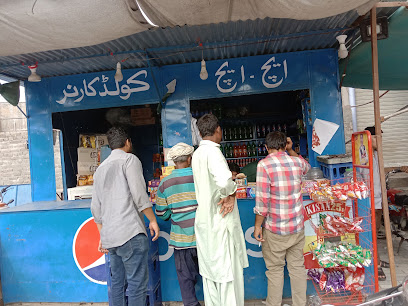
Arham Cold Corner
Discover the refreshing charm of Arham Cold Corner, a lively bar in Gujranwala, offering a delightful array of beverages in a welcoming atmosphere.
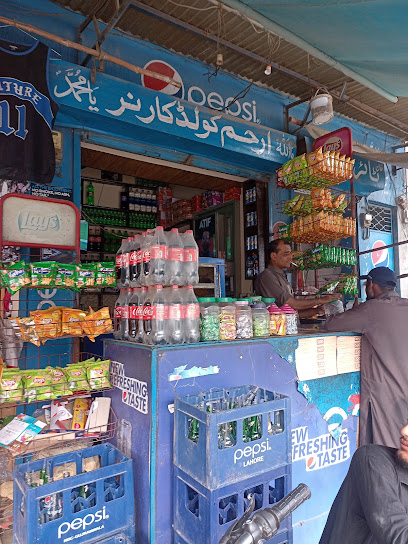
Fakhr e lasani cold corner
Discover the refreshing flavors of Fakhr e lasani cold corner, where local drinks meet a lively atmosphere in the heart of Gujranwala.
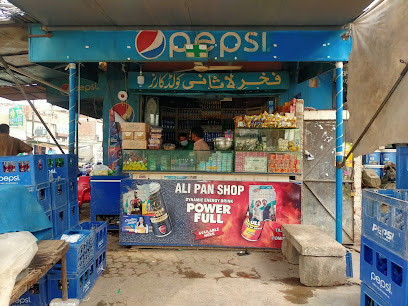
SAIF COLD CORNER
Experience the vibrant local nightlife at SAIF COLD CORNER, Gujranwala's go-to bar for refreshing drinks and a lively atmosphere.

Fresh juice
Experience a refreshing escape at Fresh Juice in Gujranwala, where vibrant flavors and a laid-back atmosphere await every visitor.
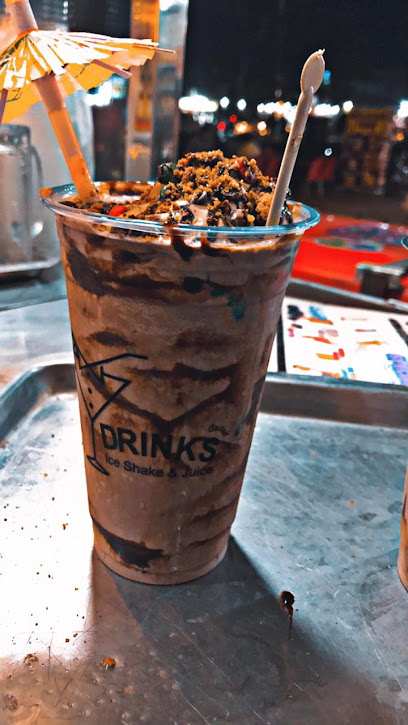
Iqbal gol-gape
Discover the lively Iqbal Gol-Gape bar in Rahwali, Gujranwala, where authentic Pakistani street food meets a vibrant social scene.

Local Phrases
-
- Helloہیلو
[hello] - Goodbyeخدا حافظ
[khuda hafiz] - Yesہاں
[haan] - Noنہیں
[nahin] - Please/You're welcomeبراہ کرم
[bara e karam] - Thank youشکریہ
[shukriya] - Excuse me/Sorryمعاف کیجیے
[maaf kijiye] - How are you?آپ کیسے ہیں؟
[aap kaise hain?] - Fine. And you?ٹھیک ہوں۔ آپ؟
[theek hun. aap?] - Do you speak English?کیا آپ انگریزی بولتے ہیں؟
[kya aap english bolte hain?] - I don't understandمجھے سمجھ نہیں آیا
[mujhe samajh nahi aya]
- Helloہیلو
-
- I'd like to see the menu, pleaseبراہ کرم مینو دیکھنا ہے
[bara e karam menu dekhna hai] - I don't eat meatمیں گوشت نہیں کھاتا
[main gosht nahi khata] - Cheers!چیرز!
[cheers!] - I would like to pay, pleaseبراہ کرم ادا کرنا ہے
[bara e karam ada karna hai]
- I'd like to see the menu, pleaseبراہ کرم مینو دیکھنا ہے
-
- Help!مدد!
[madad!] - Go away!چلے جاؤ!
[chale jao!] - Call the Police!پولیس کو بلاؤ!
[police ko bulao!] - Call a doctor!ڈاکٹر کو بلاؤ!
[doctor ko bulao!] - I'm lostمیں گم ہوگیا ہوں
[main gum hogaya hoon] - I'm illمیں بیمار ہوں
[main bemar hoon]
- Help!مدد!
-
- I'd like to buy...میں خریدنا چاہتا ہوں...
[main kharedna chahta hoon...] - I'm just lookingمیں صرف دیکھ رہا ہوں
[main sirf dekh raha hoon] - How much is it?یہ کتنا ہے؟
[ye kitna hai?] - That's too expensiveیہ بہت مہنگا ہے
[ye bohot mehnga hai] - Can you lower the price?کیا آپ قیمت کم کر سکتے ہیں؟
[kya aap keemat kam kar sakte hain?]
- I'd like to buy...میں خریدنا چاہتا ہوں...
-
- What time is it?وقت کیا ہوا ہے؟
[waqt kya hua hai?] - It's one o'clockایک بجے ہیں
[ek baje hain] - Half past (10)دس بج کر پندرہ منٹ ہوں
[das baje ke pandrah minute hain] - Morningصبح
[subah] - Afternoonدوپہر
[dopahar] - Eveningشام
[shaam] - Yesterdayکل
[kal] - Todayآج
[aaj] - Tomorrowکل
[kal] - 1ایک
[aik] - 2دو
[do] - 3تین
[teen] - 4چار
[chaar] - 5پانچ
[paanch] - 6چھ
[chhe] - 7سات
[saat] - 8آٹھ
[aath] - 9نو
[no] - 10دس
[das]
- What time is it?وقت کیا ہوا ہے؟
-
- Where's a/the...?کہاں ہے...
[kahan hai...] - What's the address?پتہ کیا ہے؟
[pata kya hai?] - Can you show me (on the map)?کیا آپ مجھے دکھا سکتے ہیں (نقشے پر)؟
[kya aap mujhe dikhha sakte hain (naqsha par)?] - When's the next (bus)?اگلا (باس) کب ہے؟
[agla (bus) kab hai?] - A ticket (to ....)ایک ٹکٹ (کے لیے ....)
[aik ticket (ke liye ....)]
- Where's a/the...?کہاں ہے...
History of Gujranwala
-
The region that is now Gujranwala has a rich ancient history. Archaeological findings suggest that this area was inhabited as far back as the early Aryan civilizations around 1500 BCE. The city’s strategic location along the Grand Trunk Road made it an important settlement during various periods, including the Maurya and Gupta Empires.
-
During the medieval period, Gujranwala came under the rule of various local and regional powers, including the Ghaznavid and Ghurid dynasties. However, it was under the Mughal Empire that the region truly flourished. The Mughals contributed to the development of infrastructure, including roads and caravanserais, which facilitated trade and commerce.
-
The 18th century saw the rise of the Sikh Misls in the Punjab region. Gujranwala became particularly significant as the birthplace of Maharaja Ranjit Singh in 1780, who later founded the Sikh Empire. Under his rule, the city became a crucial military and administrative center. Many of the fortifications and historical buildings in the city date back to this period.
-
Following the decline of the Sikh Empire, Gujranwala came under British colonial rule in the mid-19th century. The British developed the city’s infrastructure, including the railway system, which linked it to other major cities in the region. The establishment of educational institutions and administrative buildings also took place during this time.
-
The partition of India in 1947 was a tumultuous period for Gujranwala, as it was for much of Punjab. The city saw significant demographic changes, with a large influx of Muslim refugees from India and the migration of its Hindu and Sikh population to the newly created India. The city has since experienced rapid growth and development, becoming an important industrial and commercial hub in Pakistan.
-
Today, Gujranwala is one of Pakistan’s largest cities and is known for its vibrant culture, bustling markets, and delicious cuisine. It continues to be an industrial powerhouse, particularly known for its production of agricultural machinery, textiles, and ceramics. The city also hosts numerous cultural and sporting events, reflecting its dynamic and diverse heritage.
Gujranwala Essentials
-
Gujranwala is located in the Punjab province of Pakistan. The nearest international airport is Allama Iqbal International Airport in Lahore, approximately 70 kilometers away. From Lahore, you can take a taxi, a bus, or hire a private car to reach Gujranwala. The journey typically takes around 1.5 to 2 hours by road. Alternatively, Gujranwala has its own railway station, and you can take a train from major cities like Lahore, Islamabad, and Karachi.
-
Gujranwala has a variety of transportation options. Rickshaws and taxis are readily available for short distances and are relatively inexpensive. For longer distances, you can use local buses or hire a private car. The city also has ride-hailing services like Uber and Careem. Walking is an option in the central areas, but for exploring the outskirts, renting a car or using public transport is advisable.
-
The official currency in Pakistan is the Pakistani Rupee (PKR). Credit cards are accepted in most hotels, restaurants, and larger shops, but it is advisable to carry cash, especially in smaller establishments and local markets. ATMs are widely available throughout Gujranwala, and you can withdraw cash using international debit or credit cards.
-
Gujranwala is generally safe for tourists, but it's important to take standard precautions. Avoid walking alone late at night in unfamiliar or poorly lit areas. Keep an eye on your belongings in crowded places. Some areas have higher crime rates, particularly for petty crimes like pickpocketing. It is advisable to stay vigilant in areas like the main bazaar and bus stations.
-
In case of emergency, dial 15 for police assistance and 1122 for medical emergencies. Gujranwala has several hospitals and clinics that provide emergency services. It is recommended to have travel insurance that covers medical emergencies. For minor health issues, pharmacies are readily available throughout the city where you can purchase over-the-counter medications.
-
Fashion: Do dress modestly, covering your shoulders and knees, especially when visiting religious sites. Avoid wearing revealing clothing. Religion: Do respect local customs and traditions. Always cover your head when entering mosques or religious shrines. Public Transport: Do be respectful and give up your seat to elderly passengers. Don't eat or drink on public transport. Greetings: Do greet people with a handshake. A slight bow of the head is also a sign of respect. Eating & Drinking: Do try local delicacies and accept food offerings graciously. Don't refuse hospitality, as it is considered impolite.
-
To experience Gujranwala like a local, visit the local markets where you can buy fresh produce and traditional Pakistani goods. Engage with locals, as they are often friendly and willing to share stories about the city's history and culture. Don't miss trying the famous Gujranwala barbecue, particularly the 'Siri Paye' and 'Taka-Tak' dishes. For a unique experience, visit the Gujranwala Cantt area to see colonial-era architecture and enjoy a peaceful stroll in the parks.
Trending Landmark in Gujranwala
-
Sialkoti Gate
-
Fun Dunya Amusement Park Gujranwala
-
Gulshan-e-Iqbal Park
-
Sana Safinaz
-
Mughal Mahal Hotel
-
Jinnah Park
-
Clock Tower Gujranwala
-
Lahori Gate
-
Lone Palace Marriage Hall
-
Liaqat Park (لیاقت پارک)
-
C-2 Park
-
Khiali Derwaza
-
Kothi Darzian Wali
-
Memorial Tomb of Jain Monk Atma Ramji
-
Haveli of Maharaja Ranjit Singh (Sher-e-Punjab)
Nearby Cities to Gujranwala
-
Things To Do in Sialkot
-
Things To Do in Lahore
-
Things To Do in Jammu
-
Things To Do in Amritsar
-
Things To Do in Faisalabad
-
Things To Do in Rawalpindi
-
Things To Do in Islamabad
-
Things To Do in Murree
-
Things To Do in Abbottabad
-
Things To Do in Manali
-
Things To Do in Kaghan
-
Things To Do in Shimla
-
Things To Do in Naran
-
Things To Do in Peshawar
-
Things To Do in Multan










